Hurricane Beryl has made landfall in Mexico after tearing through Jamaica and the Windward Islands, bringing devastating winds and storm surges that have destroyed homes, wiped out power, and left at least 10 people dead.
The storm has weakened slightly to a Category 2 hurricane after it is now packing maximum sustained winds of 100mph (160km/h), yet the National Hurricane Center said it could “reintensify” once Beryl moves back over the Gulf of Mexico.
Follow our live coverage of Hurricane Beryl here.
Beryl has so far charted a deadly path through Jamaica, Grenada and St Vincent and the Grenadines, destroying buildings and killing at least 10, including one in Jamaica and three in Venezuela where outer rings of the hurricane caused heavy rainfall.
On Thursday, Hurricane Beryl struck the Cayman Islands as a Category 3 hurricane, sustaining winds near 120mph (195km/h), spurring on large evacuations ahead of the impact.
Beryl is forecast to ”rapidly weaken” as the hurricane moves farther inland and crosses the Yucatan Peninsula on Friday but is expected to slowly reintensify once the storm moves back over the Gulf of Mexico, according to the National Hurricane Centre.
Mexico’s President Andrés Manuel López Obrador has warned that Beryl would make a direct hit on Tulum, urging tourists and residents to seek higher ground, shelter, or homes of family and friends elsewhere.
“Don’t hesitate, material possessions can be replaced,” the president wrote.
Storm shelters were opened, and tourist resorts prepared for the strong winds, as authorities also taped off beaches and thousands of troops were deployed ahead of Beryl.
Officials in Mexico warned the storm could make a “rare” double strike.
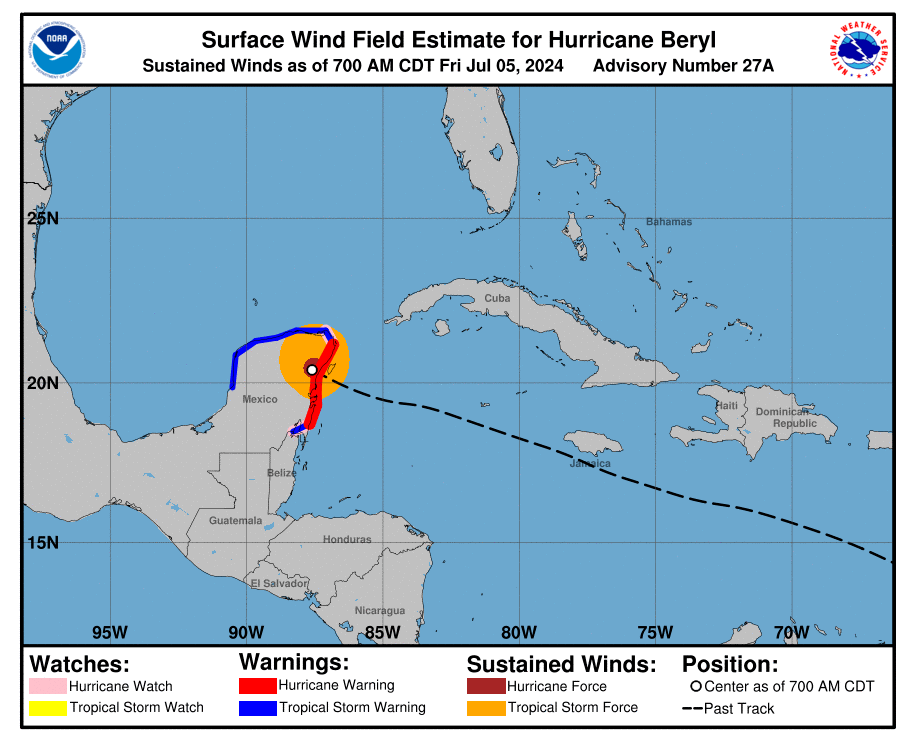
Ms Velazquez said that Beryl is then expected to hit Mexican territory a second time in the Gulf coast states of Veracruz or Tamaulipas, near the Texas border.
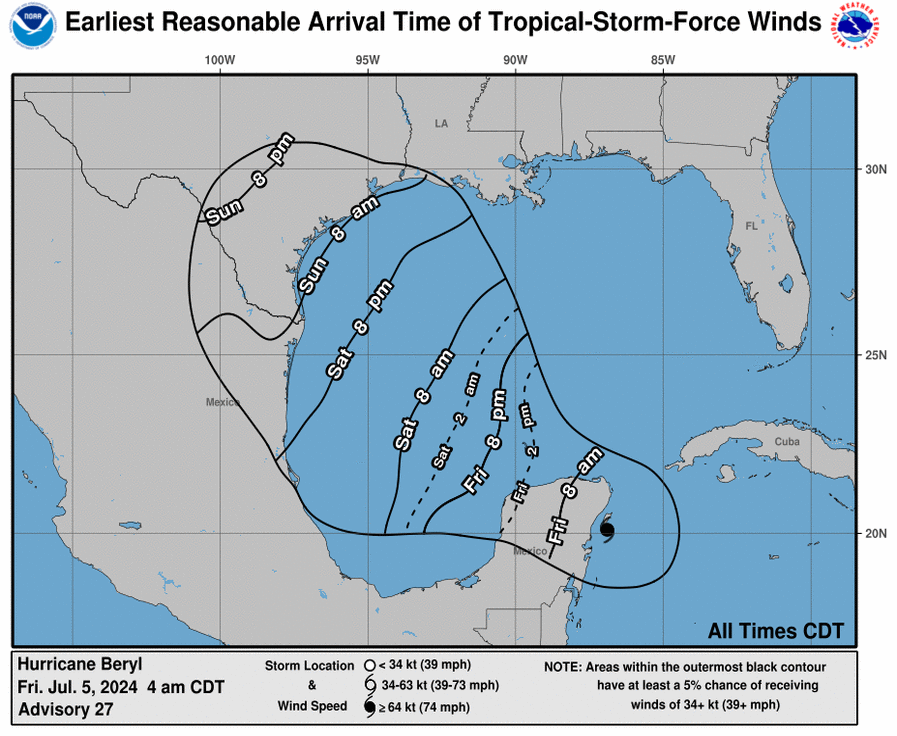
Beryl is expected to emerge over the southwestern Gulf of Mexico on Friday night, before moving northwestward toward northeastern Mexico and southern Texas by the end of the weekend, forecasters predict.
Earlier, Beryl beat records, first becoming the earliest Category 4 hurricane and later the earliest Category 5 hurricane in the Atlantic.
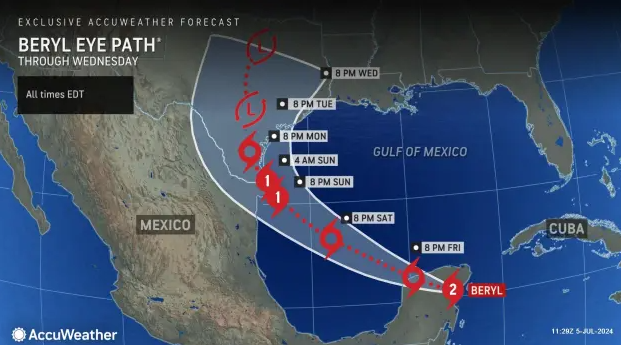
Officials in the Windward Islands, where Beryl first made landfall received “widespread reports of destruction and devastation in Carriacou and Petite Martinique,” Grenada prime minister Dickon Mitchell said.
“In half an hour, Carriacou was flattened.”
A total of eight deaths have been confirmed, with Jamaica confirming the first death on Thursday and four dead in the Windward islands, including one person who was killed in Grenada’s capital St George’s, when a tree fell on a house.
Three deaths were reported in Venezuela where rainfall from outer rings of Hurricane Beryl caused flooding and landslides.
“We do hope there aren’t any other fatalities or any injuries,” said Mitchell. “But bear in mind the challenge we have in Carriacou and Petite Martinique.”
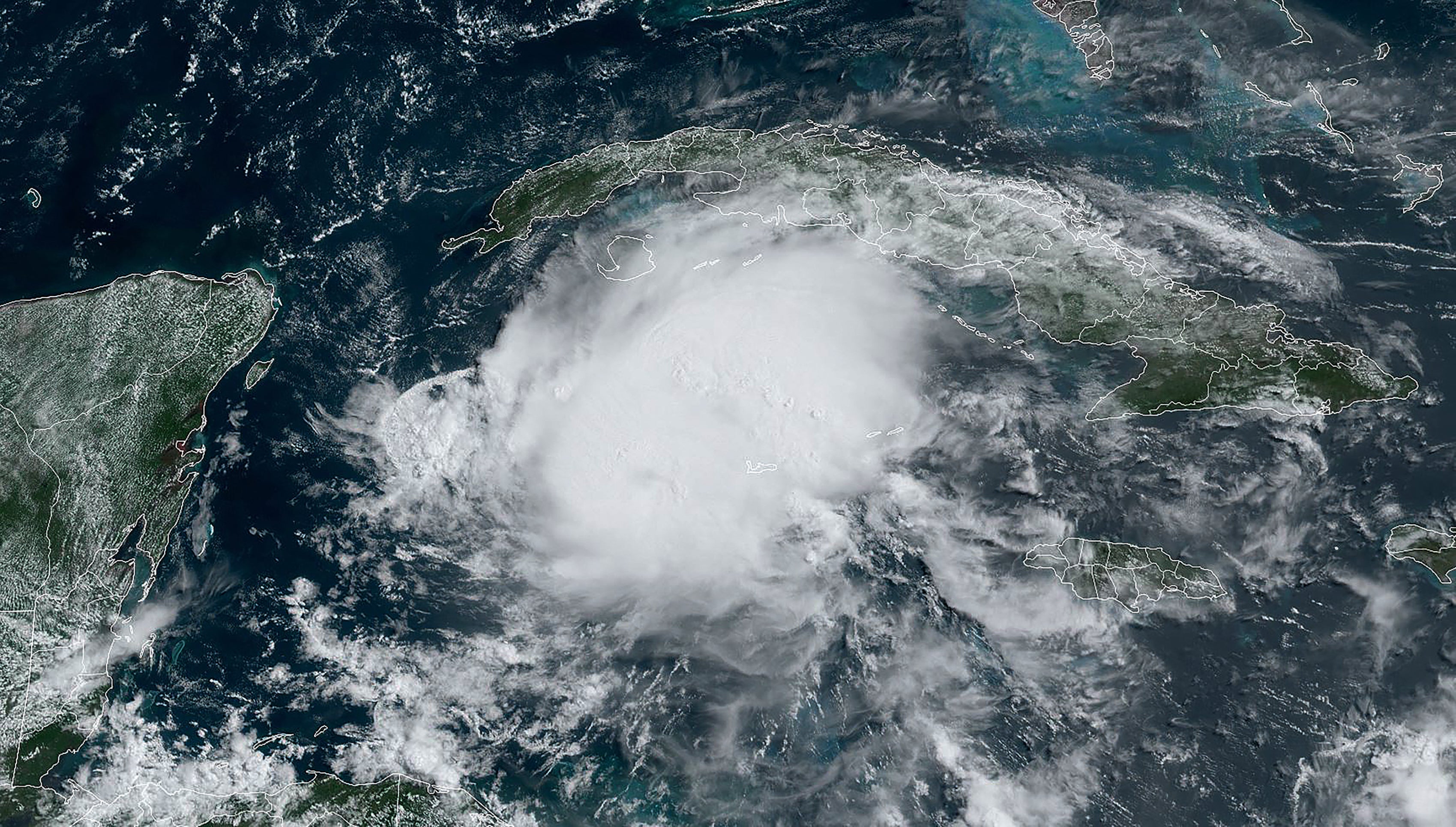
Authorities were scrambling to assess the situation on the islands of Carriacou and Petite Martinique, where there were initial reports of major damage but communications remained a challenge, he said.
On the Grenadines’ Union Island around 90 per cent of homes have been damaged or destroyed, he said.
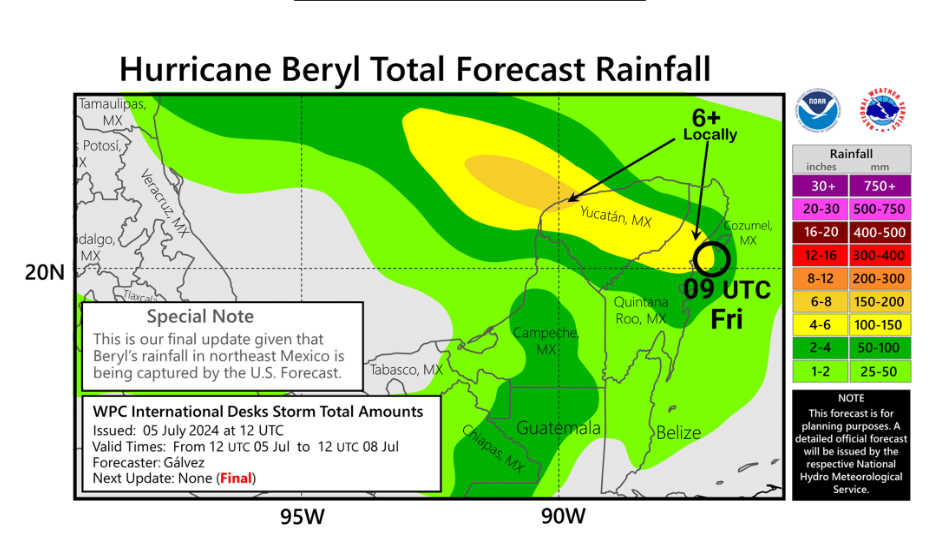
Beryl is now only the second storm on record to reach the intensity of Category 5 in July after Emily did so in mid-July 2005.
Earlier on Sunday, it became the earliest storm to reach Category 4 and the first ever to do so in June.
The hurricane was downgraded Sunday evening to a Category 3, but picked up power and speed over warm ocean water and was upgraded to Category 4 on Monday morning.
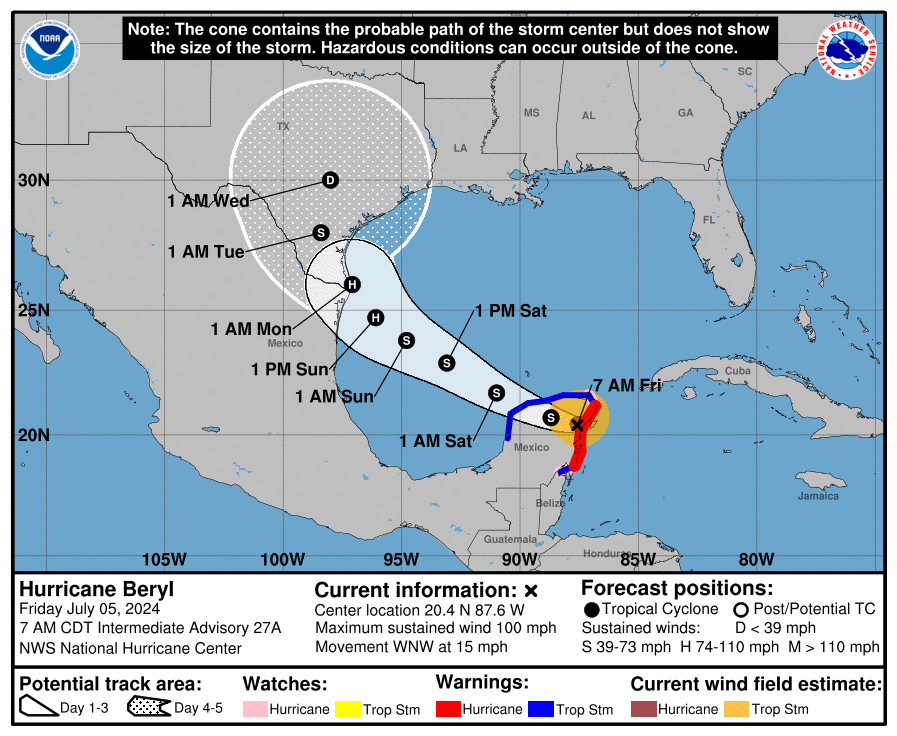
With the hurricane hitting St Vincent and the Grenadines over the carnival weekend, on Sunday prime minister Ralph Gonsalves urged residents to postpone their festivities and prepare for Beryl to hit.
According to Loop News, Mr Gonsalves has already ordered the early closure of bars and postponed some carnival events.
Airports were also shuttered in Barbados, Grenada, and St Lucia on Sunday night in preparation for the storm. However, Grenada’s Maurice Bishop International Airport reopened on Tuesday.

After making landfall in Mexico, Beryl is forecast to weaken. However, a computer model of Hurricane Beryl’s many possible paths, known as a “spaghetti” model, showed the direction the destructive storm could take as it moved towards the southeastern US in bathtub-warm waters of the Gulf of Mexico.
The model showed the storm potentially blowing into the Gulf Coast, near eastern Texas and Louisiana.
Global heating, caused by burning coal, oil and gas, has been increasing temperatures on land and the ocean. Warmer ocean waters fuel hurricanes. In the area where Beryl is located, ocean temperatures are two to three degrees above normal for this time of the year, the levels that aren’t typically seen until September.

